Are there topics you found difficult to discuss in therapy?
I want to hear from YOU!
#LGBTQ+ #Research #mentalhealth #LGBTQplus #LGBTQResearch #lesbian #gay #bisexual #queer #psychology

The evidence submission process will close on Sunday, 7 September 2025. #LGBT #NHS
www.england.nhs.uk/about/equali...

The evidence submission process will close on Sunday, 7 September 2025. #LGBT #NHS
www.england.nhs.uk/about/equali...

journals.sagepub.com/doi/10.1177/...

journals.sagepub.com/doi/10.1177/...
bmcpsychiatry.biomedcentral.com/articles/10....
Another study we did using data from a German clinic
journals.plos.org/plosone/arti...
After the many rejections of both manuscripts, which I did not experience before, I decided to move away from LGB-related research.
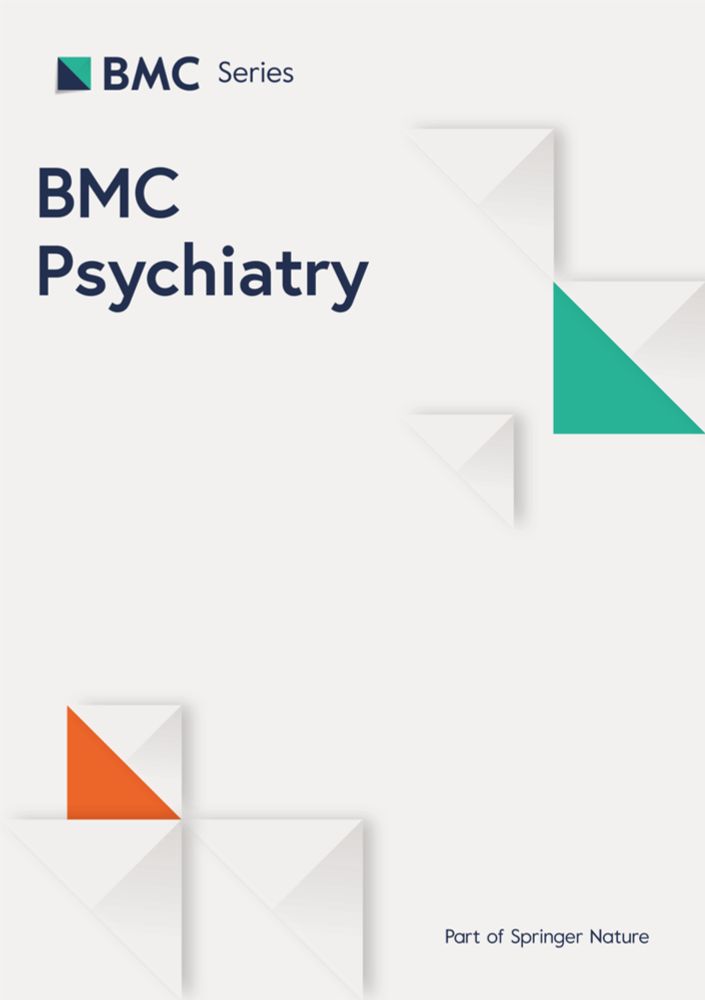
bmcpsychiatry.biomedcentral.com/articles/10....
Another study we did using data from a German clinic
journals.plos.org/plosone/arti...
After the many rejections of both manuscripts, which I did not experience before, I decided to move away from LGB-related research.
We did a similar study in 2017, it was very hard to get it published, maybe bc results didn't fit the narrative. Don't get me wrong, homophobia is real, also in healthcare. We need to get rid of biases in research, too
We did a similar study in 2017, it was very hard to get it published, maybe bc results didn't fit the narrative. Don't get me wrong, homophobia is real, also in healthcare. We need to get rid of biases in research, too
📢 Pleased to share that our new paper is now published in Psychological Medicine!
We looked at therapy outcomes for LGB patients compared to heterosexual patients in NHS Talking Therapies.
Here’s a short thread on what we found 👇
🔗 doi.org/10.1017/S003...
📢 Pleased to share that our new paper is now published in Psychological Medicine!
We looked at therapy outcomes for LGB patients compared to heterosexual patients in NHS Talking Therapies.
Here’s a short thread on what we found 👇
🔗 doi.org/10.1017/S003...
In March, the initiative lost all eight of its federal NIH grants and contracts totaling about $5 million.
Pachankis reached out to Jamie Marks. Marks' gift saved the study: m.yale.edu/c7t9
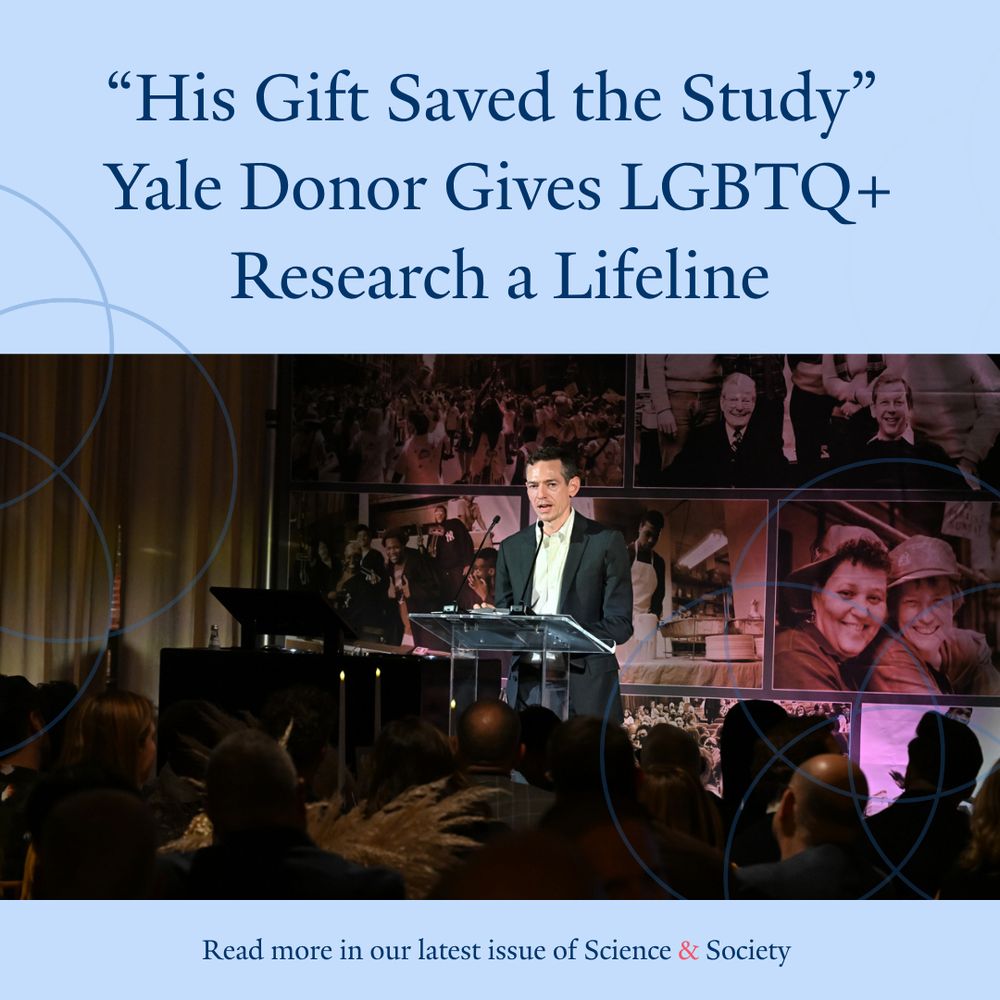
In March, the initiative lost all eight of its federal NIH grants and contracts totaling about $5 million.
Pachankis reached out to Jamie Marks. Marks' gift saved the study: m.yale.edu/c7t9
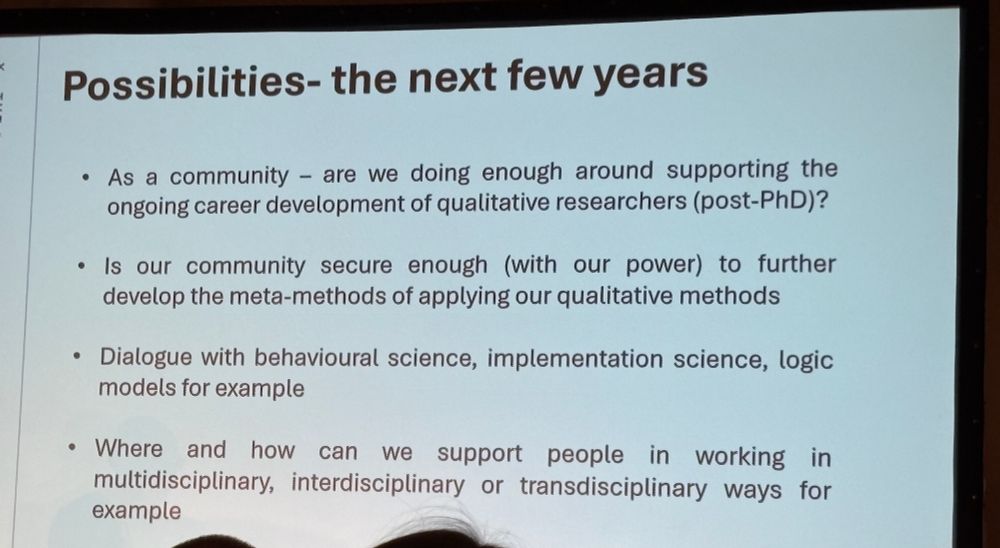
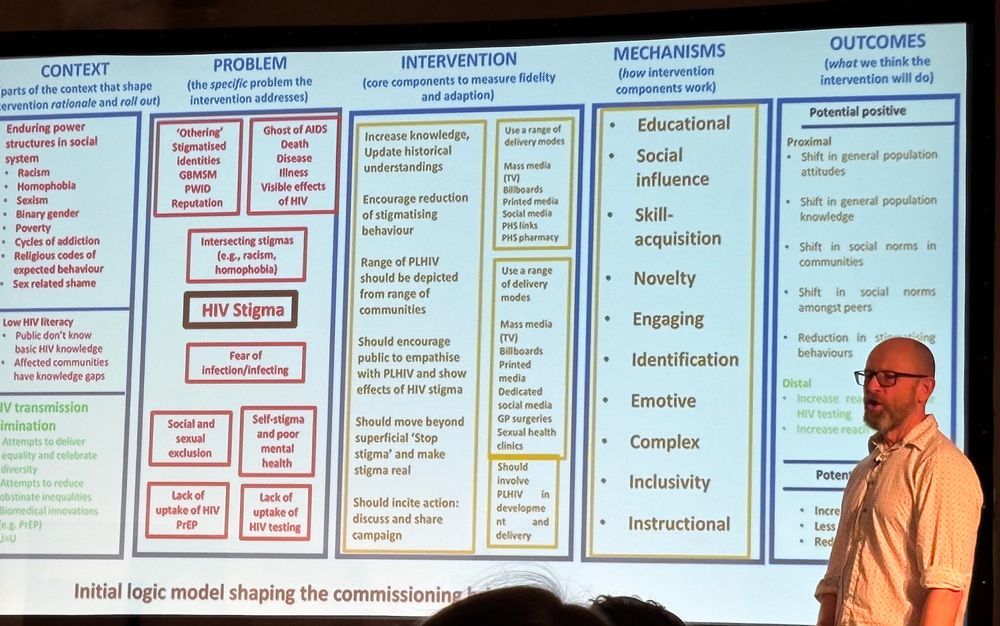
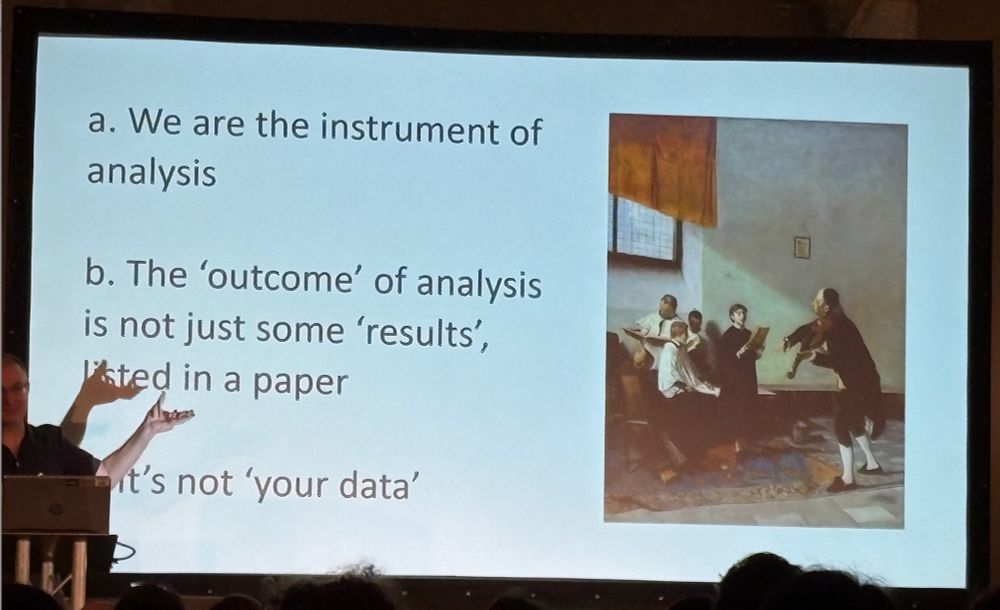
www.nature.com/artic...

www.nature.com/artic...
💬 When developing the study idea, LGBQ participants told us: “what was left unsaid mattered most.”
🔁 Please repost to support this research.
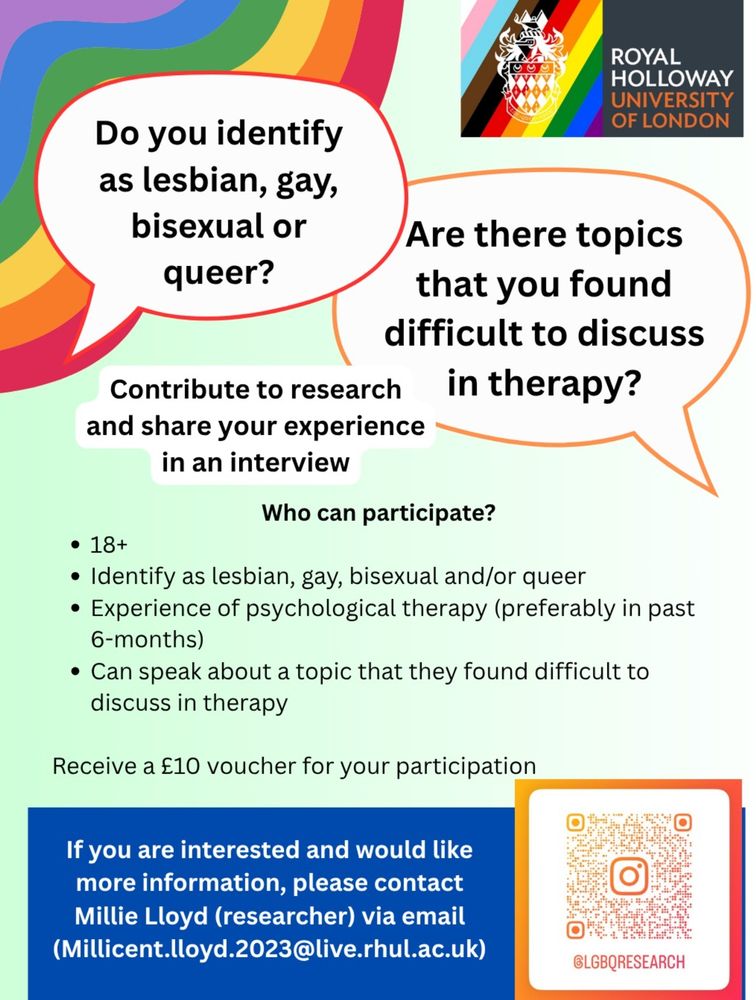
💬 When developing the study idea, LGBQ participants told us: “what was left unsaid mattered most.”
🔁 Please repost to support this research.

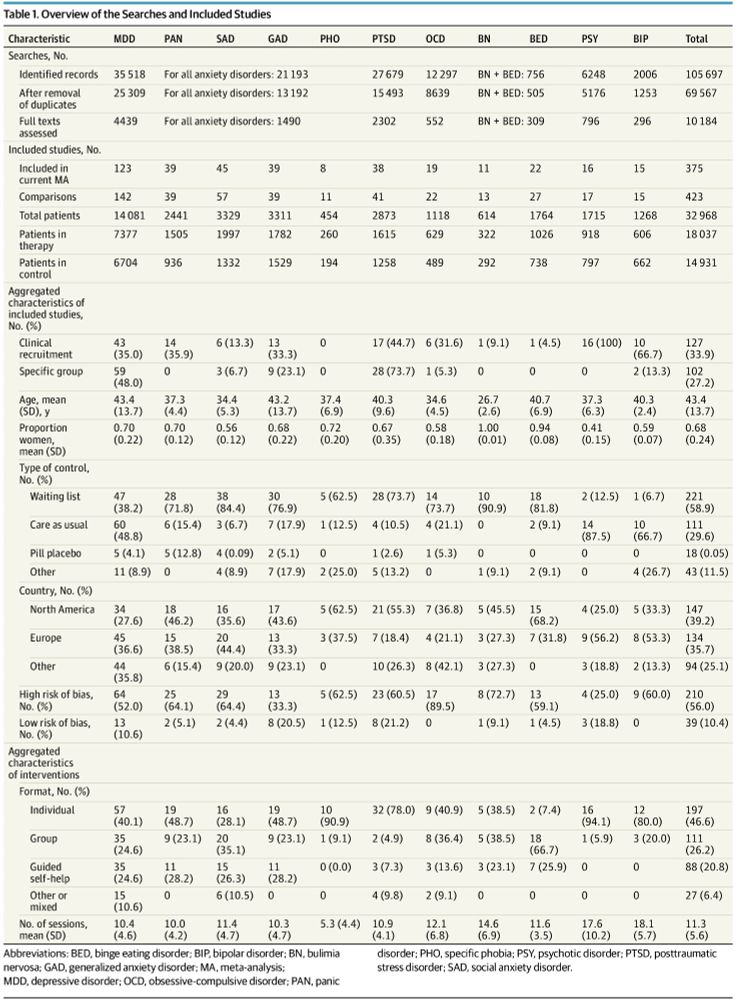

to embrace new therapies too easily but to focus on other innovations that will result in better
outcomes, such as increased frequency of sessions, feedback to patients, and better matching the
needs of patients to the expertise of therapists."
doi.org/10.1037/amp0...
to embrace new therapies too easily but to focus on other innovations that will result in better
outcomes, such as increased frequency of sessions, feedback to patients, and better matching the
needs of patients to the expertise of therapists."
www.youtube.com/watch?v=Cybn...

www.youtube.com/watch?v=Cybn...
Professor Emma Smith
#Shakespeare #Books
www.youtube.com/watch?v=coRR...

Professor Emma Smith
#Shakespeare #Books
www.youtube.com/watch?v=coRR...

HOW MANY QUALITATIVE INTERVIEWS IS ENOUGH?
eprints.ncrm.ac.uk/id/eprint/22...
HOW MANY QUALITATIVE INTERVIEWS IS ENOUGH?
eprints.ncrm.ac.uk/id/eprint/22...
www.ncrm.ac.uk/resources/on...
If you have useful resources, please add.
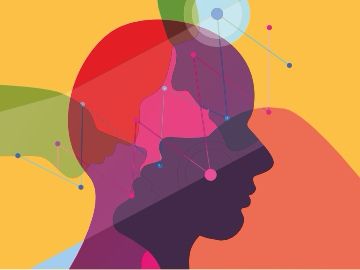
www.ncrm.ac.uk/resources/on...
If you have useful resources, please add.
Source: Pim Cuijpers and Bruce Wampold.
www.mindstewpodcast.com/e024/
Source: Pim Cuijpers and Bruce Wampold.
www.mindstewpodcast.com/e024/


